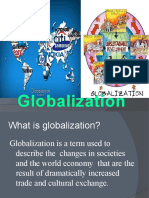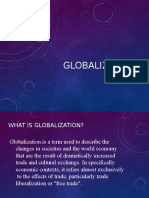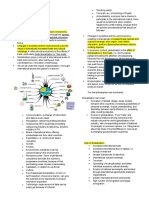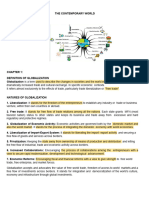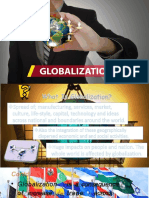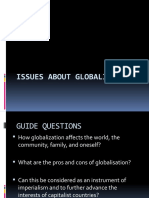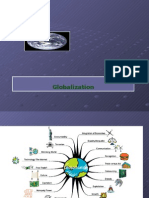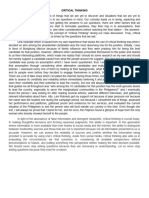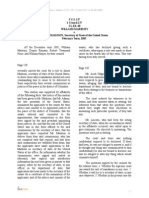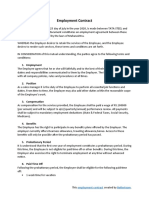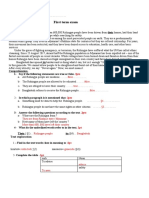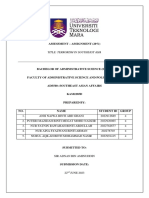0% found this document useful (0 votes)
19 views43 pagesStudents Copy Introduction To Globalization
The document discusses globalization through various lenses, including ethnoscape, technoscape, financescape, mediascape, and ideoscape, highlighting its impact on politics, technology, economy, and culture. It outlines the advantages of globalization such as increased employment, improved product quality, and enhanced communication, while also addressing its disadvantages like health risks, cultural loss, and environmental degradation. The text emphasizes the need for a comprehensive and unbiased definition of globalization, acknowledging its complexity and multifaceted nature.
Uploaded by
Hannah Michaela GemidaCopyright
© © All Rights Reserved
We take content rights seriously. If you suspect this is your content, claim it here.
Available Formats
Download as PPTX, PDF, TXT or read online on Scribd
0% found this document useful (0 votes)
19 views43 pagesStudents Copy Introduction To Globalization
The document discusses globalization through various lenses, including ethnoscape, technoscape, financescape, mediascape, and ideoscape, highlighting its impact on politics, technology, economy, and culture. It outlines the advantages of globalization such as increased employment, improved product quality, and enhanced communication, while also addressing its disadvantages like health risks, cultural loss, and environmental degradation. The text emphasizes the need for a comprehensive and unbiased definition of globalization, acknowledging its complexity and multifaceted nature.
Uploaded by
Hannah Michaela GemidaCopyright
© © All Rights Reserved
We take content rights seriously. If you suspect this is your content, claim it here.
Available Formats
Download as PPTX, PDF, TXT or read online on Scribd
/ 43
